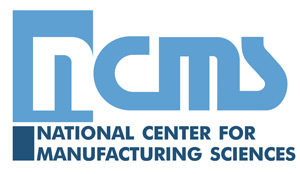Power and Signal Cable Reverse Engineering and Development to Improve MRAP Maintenance and Readiness – Phase II
NCMS Project #: 140880
Problem: The MRAP Product Manager (PM) is conducting a RESET and standardization of their vehicle fleet. Many items provided to the Army during initial MRAP fielding included commercial items delivered without a detailed technical data package. As items such as cables, harnesses, and other interconnect technologies become damaged, obtaining replacement parts through normal Defense Logistics Agency channels becomes hampered by the lack of a complete Technical Data Package (TDP). To overcome this obstacle, companies with the technical competencies to reverse engineer cables and develop TDPs concurrent with the delivery of technology ensures fleet readiness and increases competition for future procurements.
Benefit: The use of reverse engineering to develop needed cables in an as-needed basis is both economical and practical. The techniques and engineering technologies and skills used here are directly applicable to cables used in civilian applications so the use of a military test bed to add to knowledge and skills of engineers and technicians is beneficent to the general public. The industry participant will reverse engineer and create as a deliverable a complete, modern, model based, USG-Owned TDP that can be more universally distributed across DoD.
Solution/Approach: Phase I of this effort included the development of tools and processes. Phase I successfully demonstrated and conducted the reverse engineering process, while the commercial technology provider maintained ownership of the technical data. Phase II will explore a different acquisition and sustainment strategy by leveraging Phase I. Phase II will involve the government taking ownership of the technical data package after the reverse engineering process is complete in order to study the costs and benefits of OEM-owned TDPs vs. Government-owned TDPs. The objective is to develop the advocacy of the Army for repeating the process at reduced costs and exploring the advantages/disadvantages of government-owned TDPs. During Phase II, Unified Business Technologies, Inc. will conduct manufacturing process development, fabrication, test, inspection, limited additional production of Low Rate Initial Production (LRIP) quantities of a specific cable assembly.
Impact on Warfighter:
- Increased readiness
- Reduced costs
DOD Participation:
- TARDEC Engineering and Industrial Base Team
Industry Participation:
- Unified Business Technologies, Inc. (UBT)
- NCMS
Benefit Area(s):
- Cost savings
- Repair turn-around time
- Obsolescence management and continued maintenance capability
- Improved readiness
- Reliability improvement
Focus Area:
- Reliability improvement
